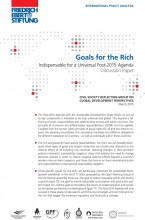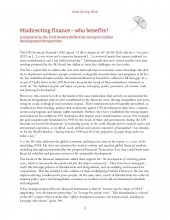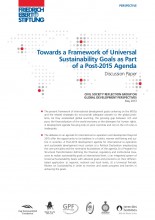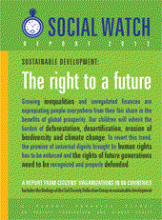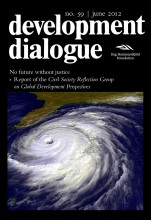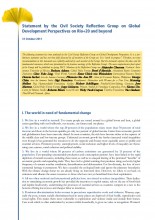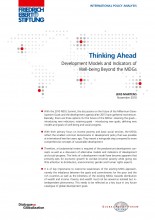Independent monitoring and review of the implementation of the 2030 Agenda and its structural obstacles and challenges are key factors for the success of the SDGs. It is for this reason, the Reflection Group on the 2030 Agenda for Sustainable Development together with other civil society organizations and networks has produced the first annual Spotlight Reportassessing the implementation of the 2030 Agenda and the structural obstacles in its realization. The report puts a spotlight on the fulfillment of the 17 goals, with a particular focus on inequalities, responsibility of the rich and powerful, means of implementation and systemic issues.
What are currently the main obstacles to achieving the SDGs? Are there transnational spill over effects that influence or even undermine the implementation of the goals? Are the current policy approaches, as they are reflected, inter alia, in the 2030 Agenda, an adequate response to the challenges and obstacles (or are they part of the problem)? What has to be done? Which specific policy changes (at international level) are necessary?
For more: www.2030spotlight.org


